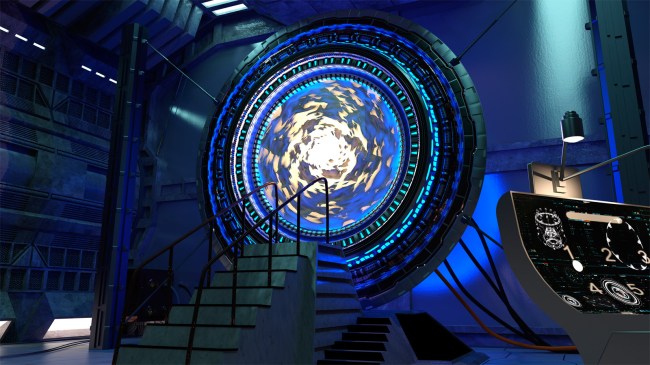iStockphoto
“Nobody thought it was possible,” Professor Prem Kumar of Northwestern University said about recently discovering how to use quantum teleportation to transmit information almost instantly and over any distance. Yes, information. Not people, sadly.
It is still, as BBC Science Focus put it this week, a big “breakthrough for human communication.” That is because communications such as this are “super secure and nearly instantaneous – limited only by the speed of light.” Which is a good thing with everything that has been happening lately with the FBI issuing warnings about texting and concerns about social media apps like TikTok.
Kumar and his group of engineers are now the first to ever successfully demonstrate quantum teleportation over a fiber optic cable already carrying Internet traffic.
“This is incredibly exciting because nobody thought it was possible,” Kumar, professor of electrical and computer engineering at Northwestern and lead author of the study that was recently published in the journal Optica, said in a press release.
“Our work shows a path towards next-generation quantum and classical networks sharing a unified fiber optic infrastructure. Basically, it opens the door to pushing quantum communications to the next level.”
The discovery introduces the new possibility of combining quantum communication with existing Internet cables — greatly simplifying the infrastructure required for distributed quantum sensing or computing applications.
[…]
Only limited by the speed of light, quantum teleportation enables a new, ultra-fast, secure way to share information between distant network users, wherein direct transmission is not necessary. The process works by harnessing quantum entanglement, a technique in which two particles are linked, regardless of the distance between them. Instead of particles physically traveling to deliver information, entangled particles exchange information over great distances — without physically carrying it.
“In optical communications, all signals are converted to light,” Kumar explained. “While conventional signals for classical communications typically comprise millions of particles of light, quantum information uses single photons.”
“By performing a destructive measurement on two photons — one carrying a quantum state and one entangled with another photon — the quantum state is transferred onto the remaining photon, which can be very far away,” said Jordan Thomas, a Ph.D. candidate in Kumar’s laboratory and the paper’s first author. “The photon itself does not have to be sent over long distances, but its state still ends up encoded onto the distant photon. Teleportation allows the exchange of information over great distances without requiring the information itself to travel that distance.”
Thomas added, “Although many groups have investigated the coexistence of quantum and classical communications in fiber, this work is the first to show quantum teleportation in this new scenario. This ability to send information without direct transmission opens the door for even more advanced quantum applications being performed without dedicated fiber.”
The researchers’ next steps are to extend their experiments over longer distances and exploring the possibility of carrying out experiments over real-world in-ground optical cables.
In 2022, scientists at Delft University of Technology in the Netherlands learned how to teleport information between unconnected nodes using what is referred to as quantum entanglement.
“It’s really teleportation as in science-fiction movies,” Delft University researcher Ronald Hanson told New Scientist at the time. “The state, or information, really disappears on one side and appears on the other side, and because it’s not traveling the space in between, [the data] can also not get lost.”
Hanson added that their goal is to eventually build a quantum internet. With the breakthroughs made by the scientists at at Northwestern’s McCormick School of Engineering we are now one step closer to that becoming a reality.

